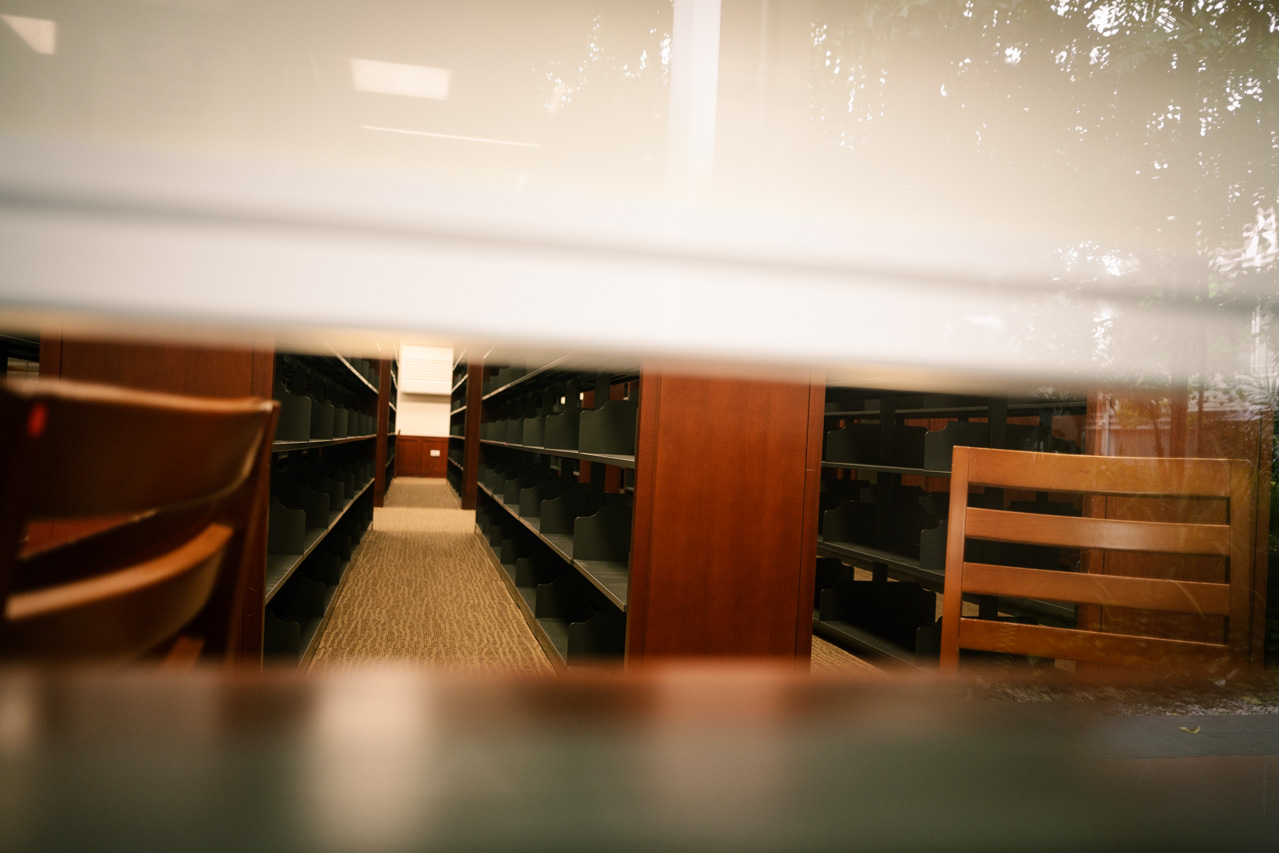All images by Justin Tan for RICE Media unless stated otherwise.
It wasn’t quite like the public book burnings in not-so-distant history, but the sight of bags of books unceremoniously piled up outside Yale-NUS Oculus on Tuesday morning (May 20th) still felt deeply wrong. These were thousands of tomes from Yale-NUS Library in perfectly usable condition, after all—and they were bound for a facility where they would be shredded.
Since Yale-NUS College’s (YNC) closure was announced in 2021, responsibility for its library has been progressively handed over to the National University of Singapore (NUS). With such a long runway to decide the fate of the books in the Yale-NUS library, it was understandably shocking for Yale-NUS students to find out the fate of thousands of their library’s books, just weeks before the college officially closes for good.
Within hours, the images sparked outrage and sorrow across alumni circles and the local literary scene at large. Concerned students, university staff, and members of the public banded together to start a petition that’s since amassed over 1,000 signatures.
It was only on Wednesday morning that NUS broke its silence and apologised for BookGate in a media statement.
Associate Professor Natalie Pang, the University Librarian at NUS, explained that the majority of books from the YNC Library were rehomed within NUS Libraries. Excess books have been given away to both faculty and students in the past, she said. However, in this instance, the books were only offered to faculty.
“We understand later that many students are interested in having these books, and we would have usually acceded to their requests. We did not do so on this occasion and we apologise for the operational lapse.”
NUS is now organising a giveaway on campus so that the excess books can find a new home. While 500 of the books spotted on Tuesday have already been disposed of, there are still 8,500 books up for grabs. That’s 8,500 books that would have now been bits of pulp had students and alumni not spoken up.
Despite what NUS says in its statement, though, this wasn’t just a lapse. It wasn’t someone simply forgetting to check in with students before condemning thousands of usable books. This is a well-resourced institution which had years to decide what to do with the books. It signals a lack of thoughtfulness and transparency towards its students and the public.
But of course, this issue extends beyond the disposal of books. When cherished institutions like YNC are shuttered, who decides what is preserved and what is thrown away? And if even books can be discarded like trash, is nothing sacred?
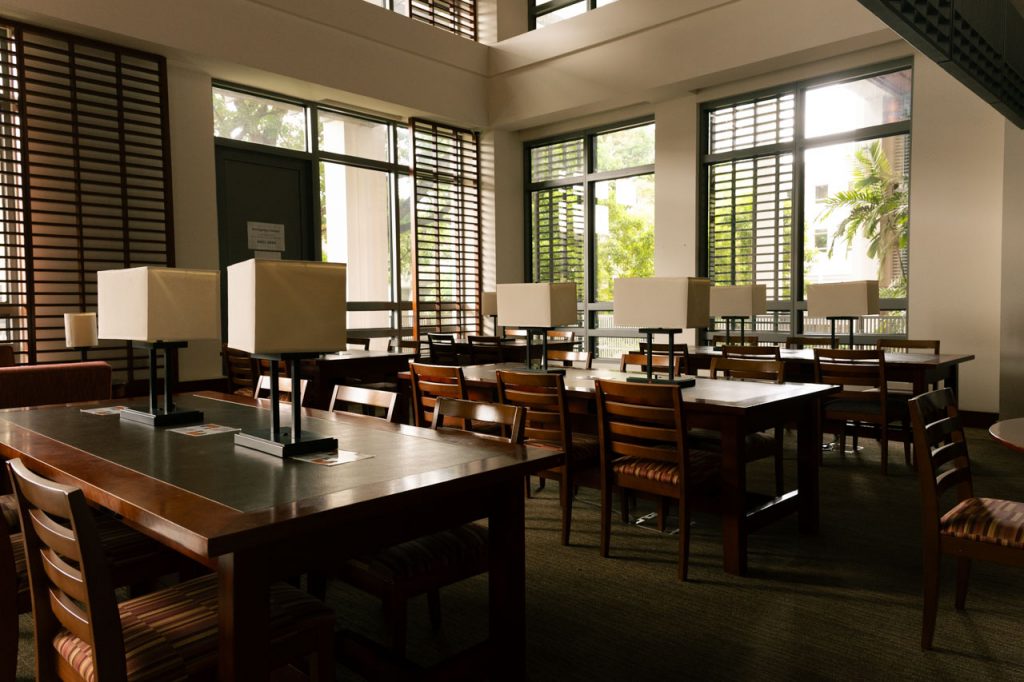
This Was Embarrassing and Preventable
At a fundamental level, what makes this incident so jarring is that it happened at a university— the top one in Asia, too.
As a revered institution of higher learning, you’d think that NUS is all about the preservation and sharing of knowledge. Yet, because of a supposed “operational lapse”, students had to watch as books were loaded into trucks and taken to be shredded. It’s not just a logistical failure; it’s an embarrassment.
As MP-elect and self-confessed bibliophile Jamus Lim put it in an Instagram post on the matter, “You may say that books are just books; without reading them, they are just ink printed on dead trees. Yet there is something magical about a simple tome.”
Wong, a recent Yale-NUS Philosophy graduate who wishes to go by her last name, tells RICE that many of the books in YNC’s library weren’t cheap. The philosophical texts she used for her studies typically cost upwards of $100.
“So when the books were sent for shredding because they were duplicates, I felt so indignant. These precious resources—that people from my income bracket can hardly afford—are just being destroyed when there could be much better uses for them.”
What’s also upsetting is how preventable this whole mess was.
The root of the matter—according to NUS, at least—was that the school didn’t realise that their students were interested in the books. Which, when you think about it, is quite absurd for an actual university to state.
Prof Pang herself mentioned that excess books have been offloaded to students in the past. What made this time any different? And how extensive were their efforts to distribute the books to staff?
These are valid questions, especially since some faculty members left comments online saying they were never informed of any excess books.
With how quickly students and alumni rallied together to save the books, it was clear that had any of them been made aware ahead of time, they’d have happily accepted the books, or at least assisted in the rehoming process.
Dylan, a recent Yale-NUS History graduate who wishes to be identified by his first name, confirms as much. Just four days prior, Dylan and a couple of classmates had organised a book donation drive from the college’s ‘Give-And-Take Room’, where people and other Yale-NUS departments had already been donating books in anticipation of the impending shutdown.
The team of 10 volunteers managed to send over 500 books to Thryft, a used books seller, the 24-year-old says.
“We managed to safely donate so many books in the span of four hours with very minimal support,” he affirms.
“So it was disappointing to see an institution with dozens of staff, way more resources than a couple of volunteers, and a few years of advance notice somehow end up trashing books.”
Yolanda, another recent graduate, adds, “I think in YNC, the community culture is really big. If the issue is the constraint of resources, of energy, or of time, students would have come and helped—if they had just revealed this to us.”
The decision to discard the books so abruptly and with so little notice seems like “just the easier thing to do”, says Seah, a penultimate-year Yale-NUS double degree student.
So was all this really an unintentional lapse? Or is this a case of damage control after getting called out?
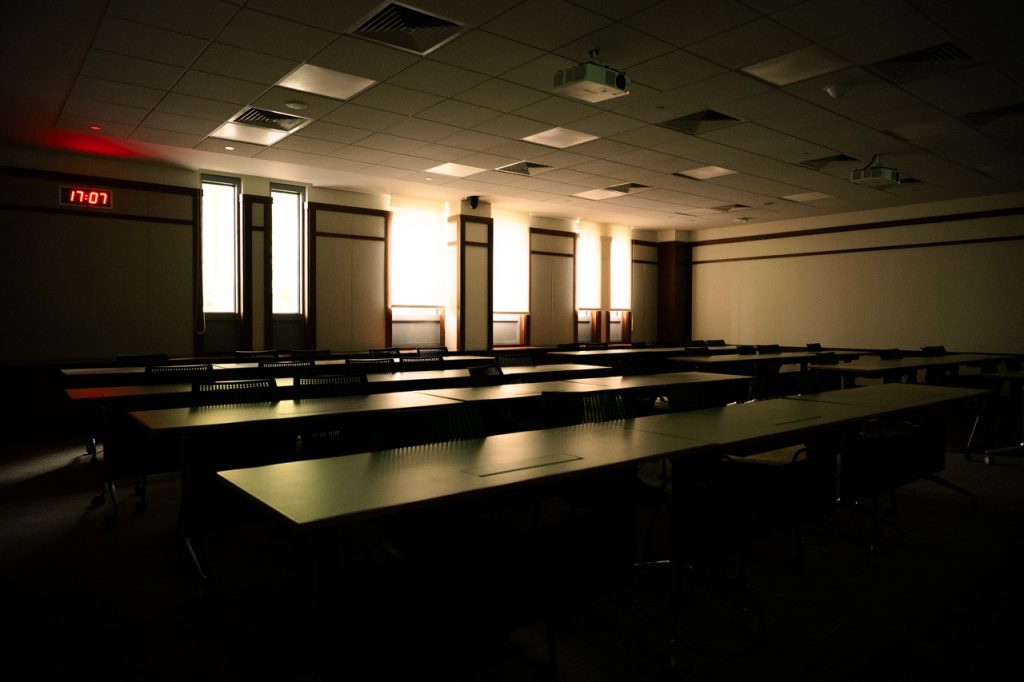
Top-Down Cultures
The haphazard disposal of Yale-NUS books also exposes deeper concerns about how decisions are made at the institutional level—namely, a top-down culture, a troubling lack of transparency, and a glaring failure to learn from past missteps.
For many students and alumni, this moment is all too familiar. It was a painful echo of how the closure of YNC itself was handled—announced suddenly without prior consultation, and executed with clinical efficiency.
After the backlash from students in 2021, Wong had held some hope that the university would improve its handling of significant decisions affecting the community, she says.
“Yesterday, we learnt that NUS has yet to learn from previous experiences—and this is worrisome for an acclaimed ‘top’ university.”
It’s not clear how much NUS really consulted the people who had an emotional stake in the books’ fate—the librarians, students, and faculty.
Dylan, who rushed to campus when he heard about the book disposal, recounts a moving moment after the trucks carried the last books away. One of the librarians on the scene shared how personal the collection had been to him, he said.
“He was one of the earliest staff members who actually helped to source so many of these books—not just from Singapore, but from all over the world.”

The librarians on the scene told him that their hands were tied in the matter, Dylan added.
The disposal wasn’t just an administrative matter. It was an emotional and symbolic loss for those who built and maintained the library, and the students who benefited from it.
By the time word of the book disposal spread through student group chats, it was the second-to-last day that they were allowed to remain in their dorms on campus. Many had already left campus for good.
The timing, whether intentional or not, created the perception that this was done quietly to avoid scrutiny. As John*, a former Yale-NUS student who graduated in 2022, points out, “No one might have found out about the book disposal plan if it had taken place just slightly later when the campus had been emptied for the holidays.”
For an institution that prides itself on being one of the region’s leading universities, the lack of inclusive decision-making is hard to ignore.

On Erasure
This apparent lack of inclusivity stings because the books weren’t just resources—they were central to the shared Yale-NUS experience, as Yolanda points out. Another piece of the college nearly evaporated.
Many footprints left behind by Yale-NUS have become hard to trace as it treks down its path to closure. In the digital realm, many public webpage domains once belonging to student organisations now house other entities, or are gone. For instance, The Octant, the Yale-NUS school paper, last posted on Instagram in 2022. Its website is now used by another organisation.
Even the Yale-NUS College Instagram page is currently publicly inaccessible. Although disconcerted netizens have been informed that the page may be reinstated, no guarantees have necessarily been made.

To see much of the effort that went into constructing Yale-NUS’ community fade, one can’t help but empathise with the vexation of the students.
For a community that has spent the last four years worrying about becoming a “mere footnote”, basic respect for repurposable resources integral to the school’s culture seems like a bare minimum. The distressing handling of the books is a mere microcosm of a broader inability to do this.
Dylan acknowledges that as much as the books technically belonged to NUS Libraries, their actions lacked tact for the emotions of those who handled the books throughout the college’s history—much less the knowledge potential they had if put in other people’s hands.
“It’s frustrating to see how much resources are being just thrown away so carelessly,” he laments.
If there was any silver lining here, it’s the gumption the Yale-NUS community demonstrated it still has. Whether that be the graduating class, alumni, or members of the public sympathetic to the dire circumstances.
“We’re still grieving from the closure of the college… But even so, in spite of all this grief and sadness… people resonate to it. People rightly call it out.”
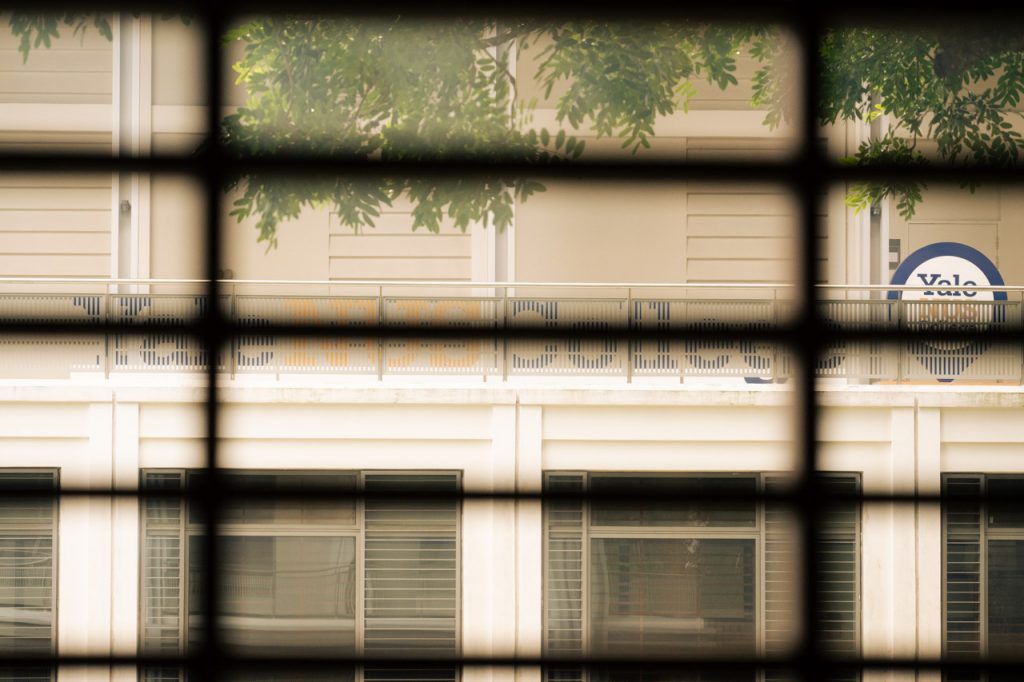
“It was a bit distasteful to see books being disposed of in that manner and brought to mind book burning in ancient China,” offers John.
“Decision-making processes at the school might benefit from less callousness and more thoughtfulness to avoid situations like this again.”
It raises larger questions on how we decide what’s worth preserving when an institution closes its doors. Aren’t the people who built and defined these communities stakeholders in these affairs? As such a large-scale exercise, were community sensitivities considered in this decision?
The college has previously had town halls regarding how other Yale-NUS resources would be repurposed. It’s still unclear why there weren’t any this time around.
For Jiaying, a recent Urban Studies graduate from Yale-NUS who wants to be identified by her first name, people put trust in public institutions to keep supporting patrons in the loop. In this instance, she felt the student and staff were carelessly and thoughtlessly denied that.
“I think it points to how they didn’t see the value in a community that could help in this,” the 21-year-old says.
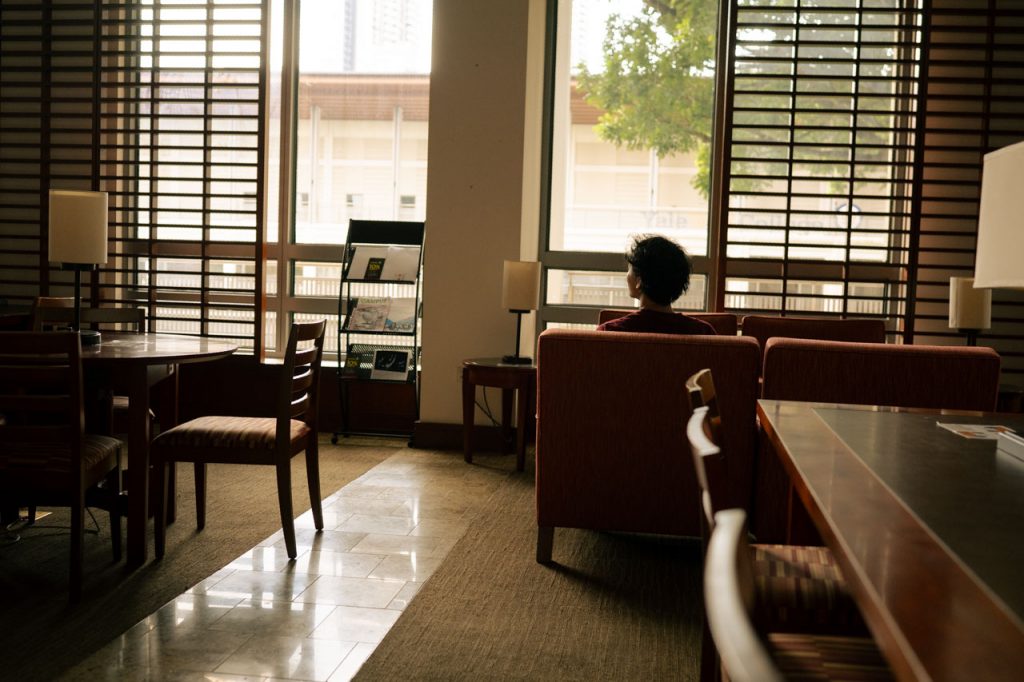
Lost Books, Lost Time
To some credit, NUS has now apologised for the pandemonium; they did attempt to retrieve the books as things unfolded, and relief comes in knowing that of the 9,000 books set for disposal, the 8,500 that remain are set to be given away at book fairs.
However, that’s still 500 books that could have gone to literally anyone. Communication on when, why, or how the books were being disposed of was slow, if not erratic or conflicting. What was supposed to be a bittersweet final moment for the Yale-NUS community just became a bit more bitter. A sour taste lingers in people’s mouths, even as damage control takes place.
As much as NUS has acknowledged their need to own up to their mistakes, the book disposal is more than just a logistical mishap. It symbolises a wider shortcoming in handling Yale-NUS’ closure with the receptivity and care it warranted. Furthermore, the episode adds to the struggles people on the ground face in meaningfully engaging with the university body.
The school’s public statements recognise the crux of the issue: if they’ve been listening, it hasn’t been active enough. And if they’ve been communicating, it hasn’t been done well, externally or internally. A public fumble like this shouldn’t have been necessary to ‘realise’ that.
This fiasco ought to make us reflect on how we treat educational institutions when they close: What else have we discarded, not just physically, but symbolically, in the process? When dealing with legacies, our standard operating procedures ought to treat them with the same empathy Yale-NUS stood for.

